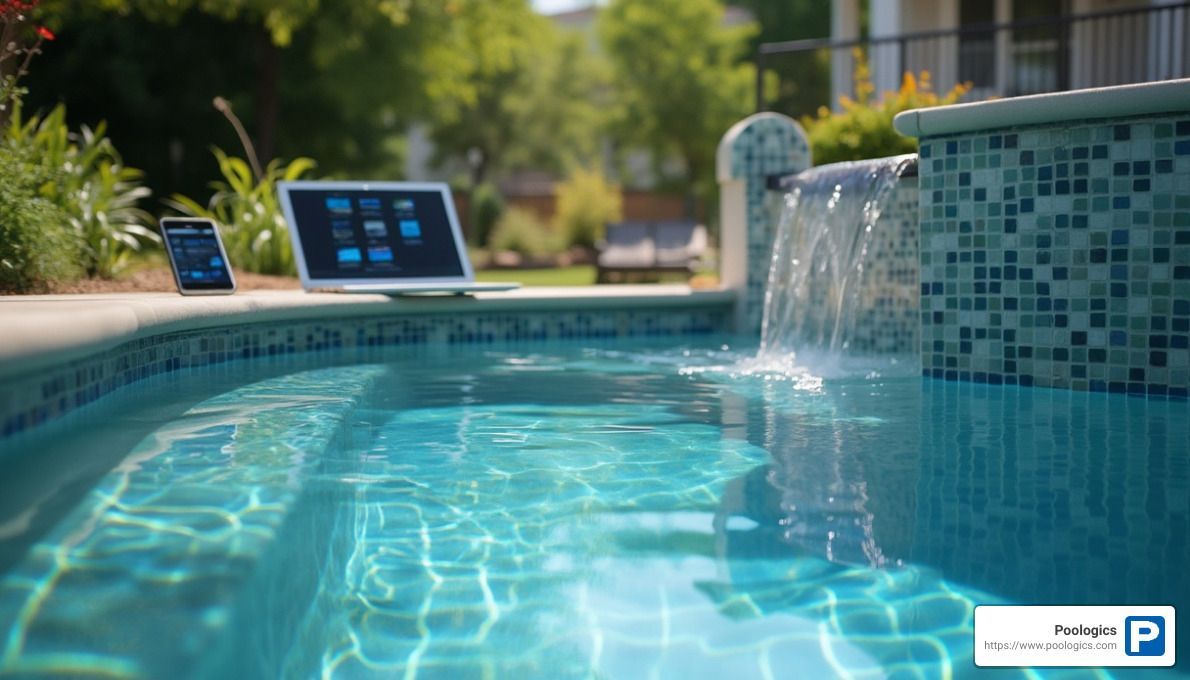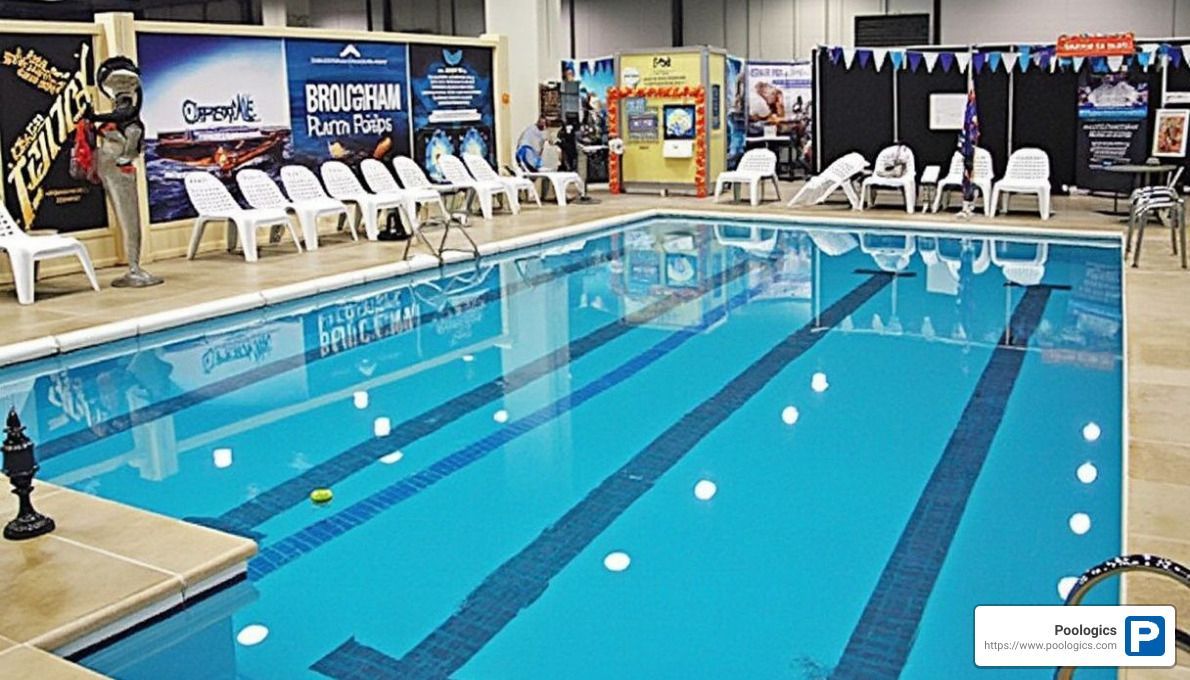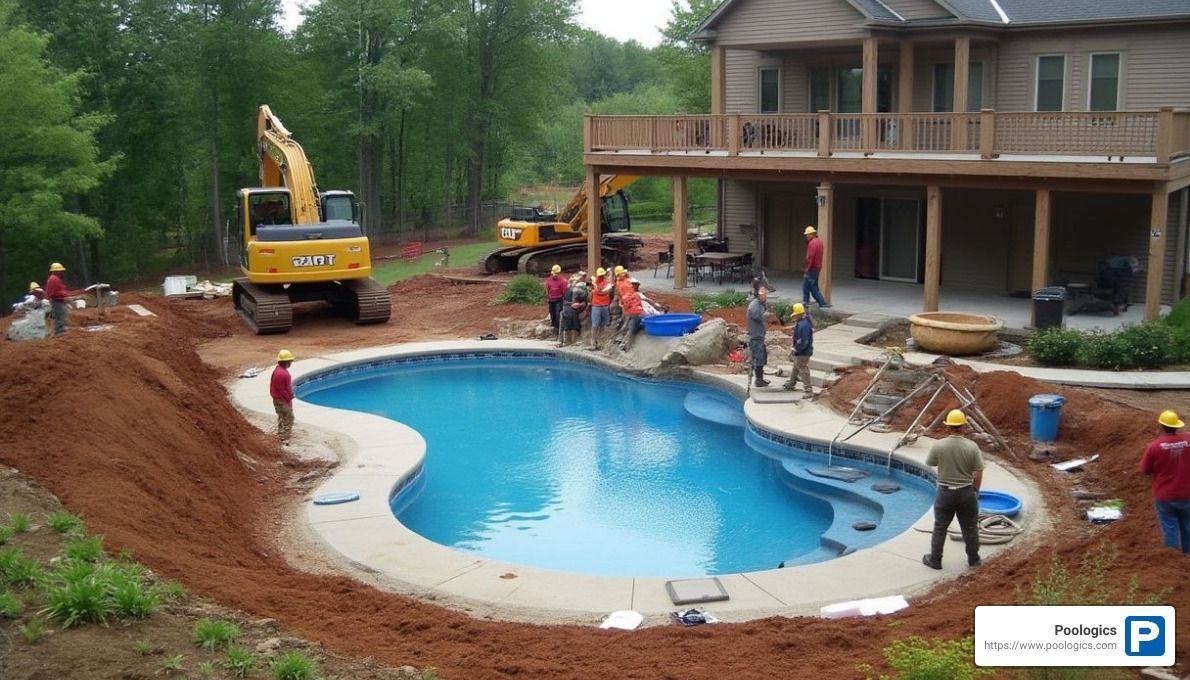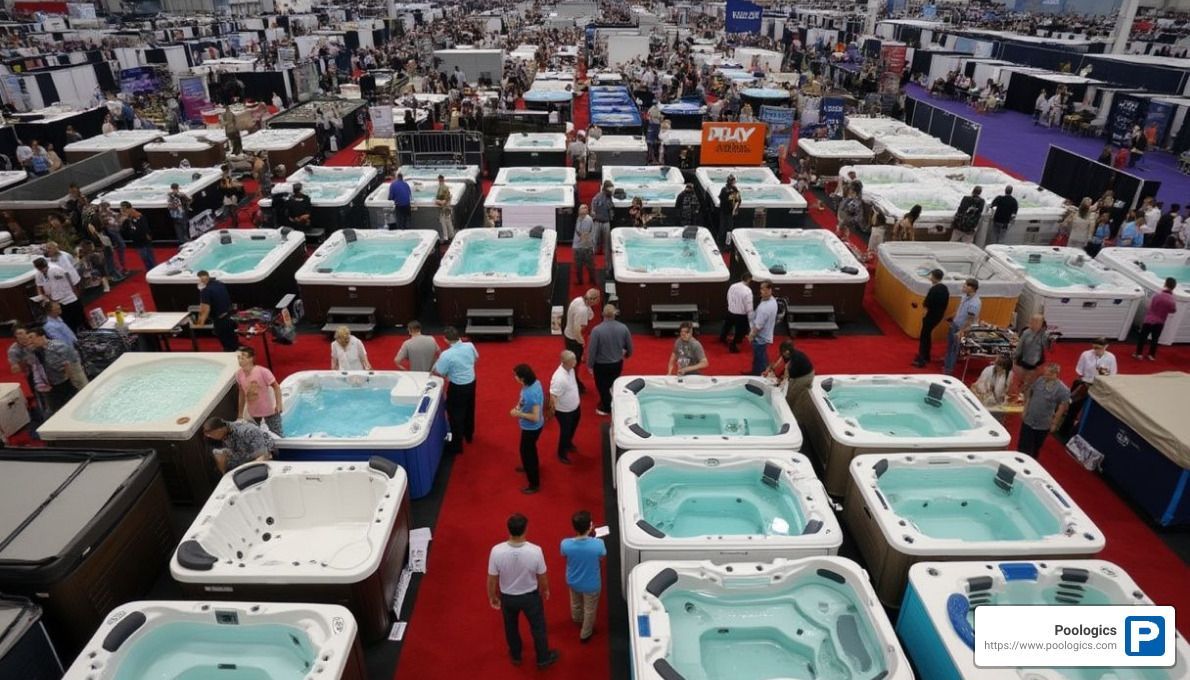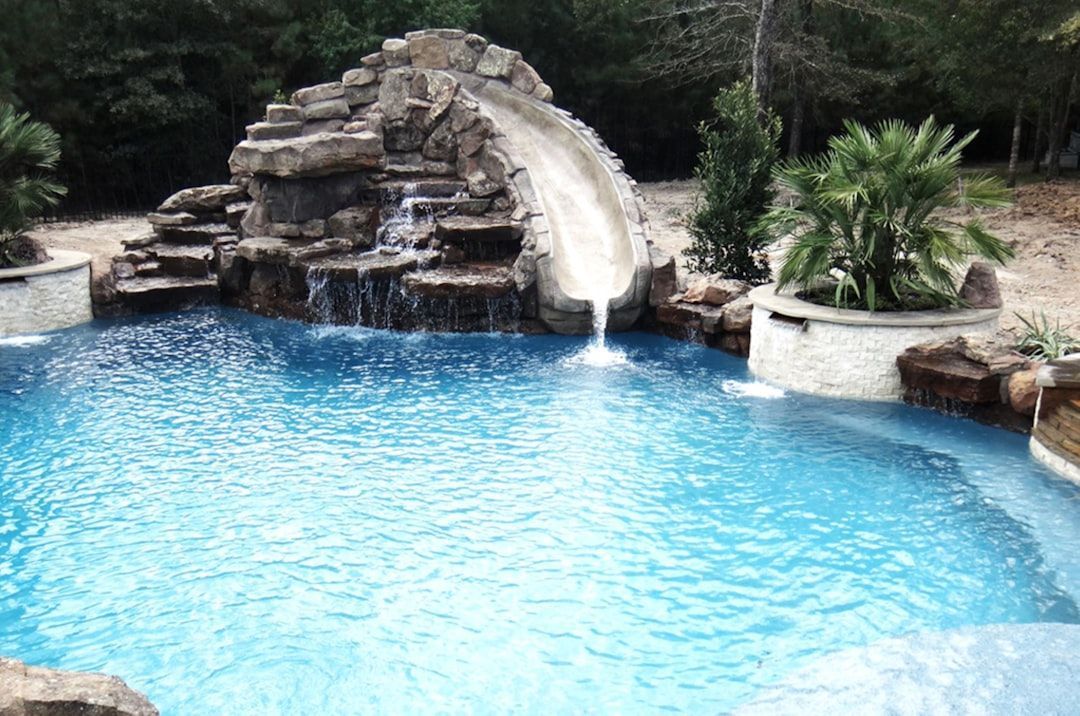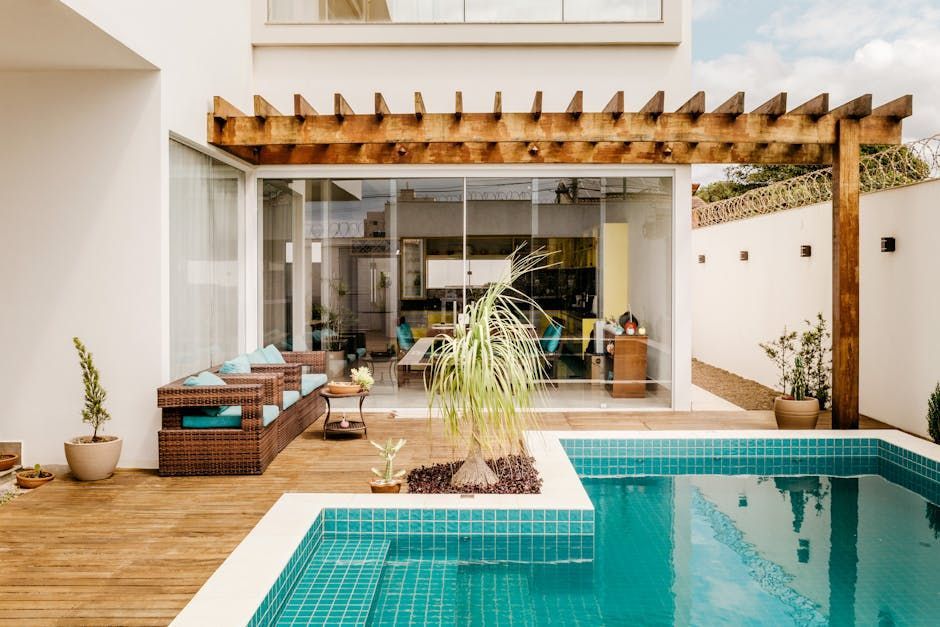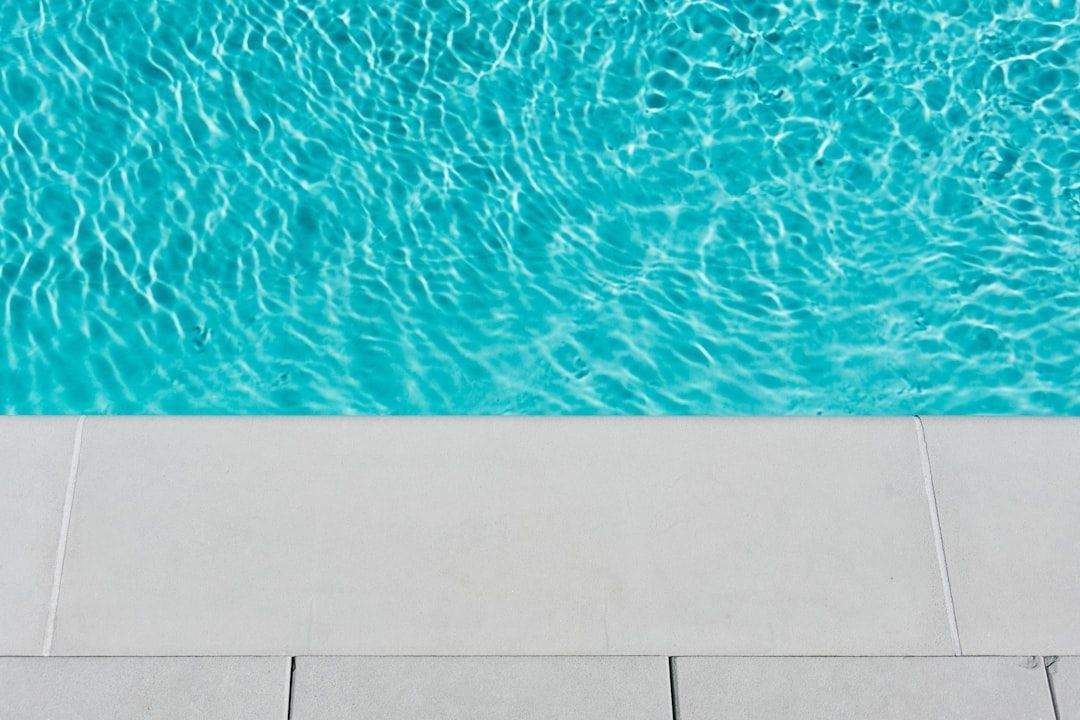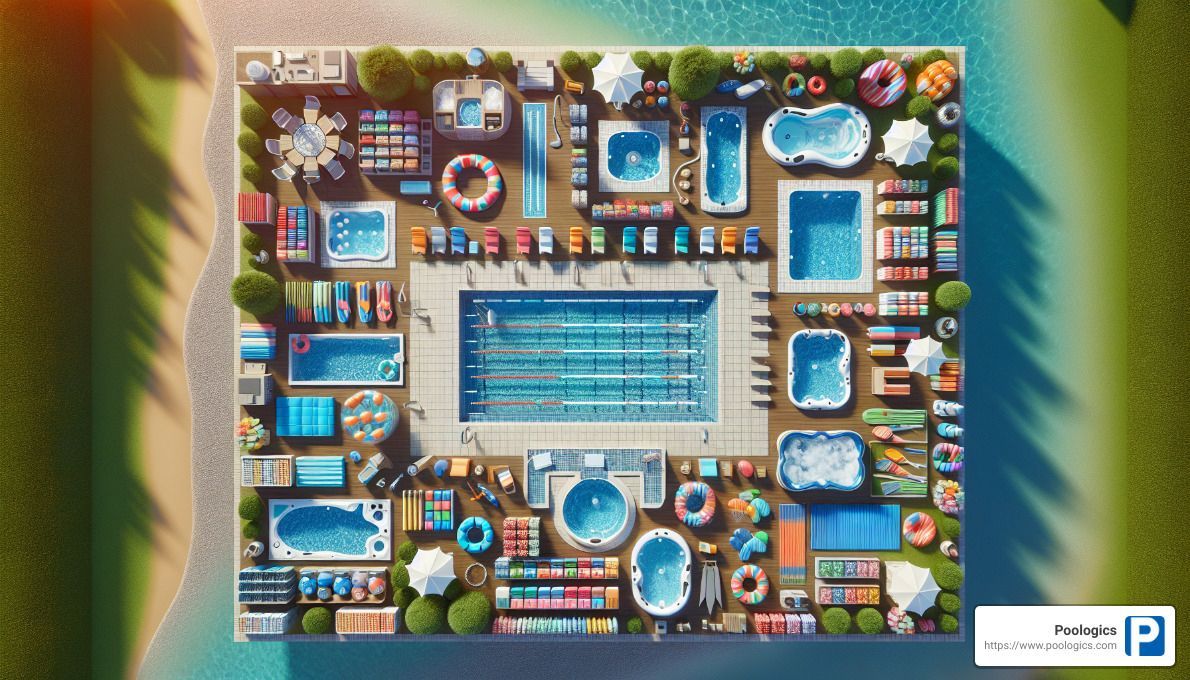POOLOGICS
The Importance of Job Costing for Swimming Pool Projects
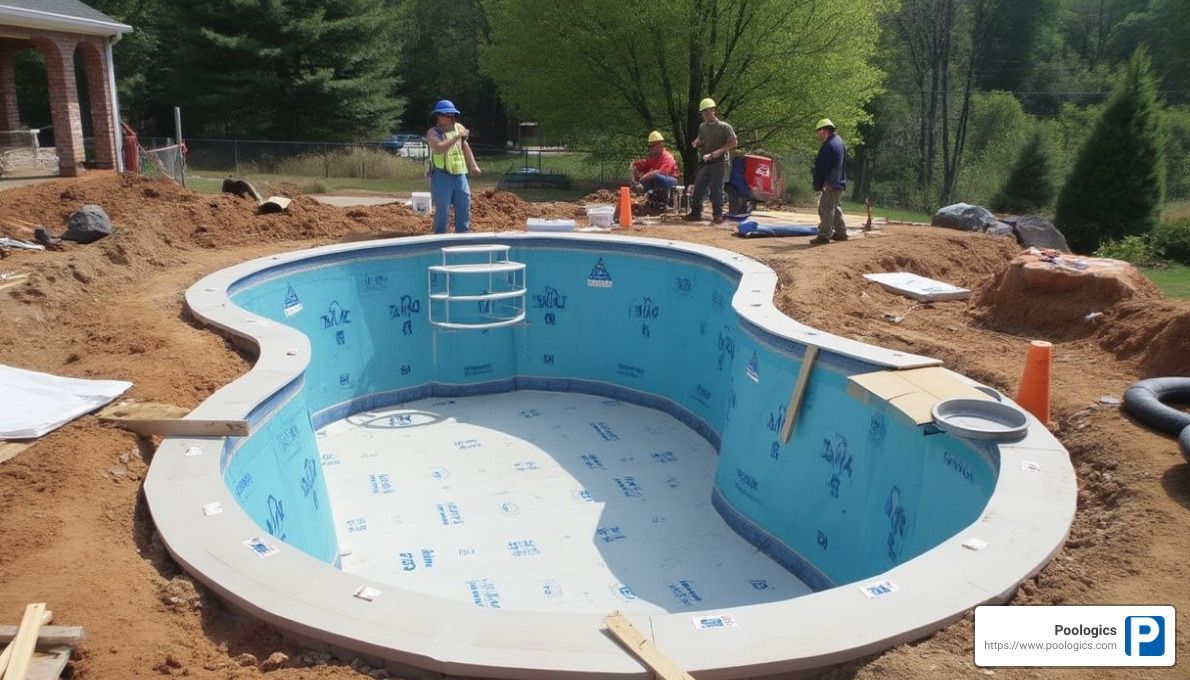
Accurate job costing when building swimming pools is essential for any pool construction company aiming to improve profitability and customer satisfaction.
Here’s why.
- Accurate Costing: Knowing your exact costs allows you to provide precise quotes to clients, avoiding unwelcome surprises on the final bill.
- Profitability: Precise job costing ensures that each project is profitable, covering all direct and indirect expenses.
- Efficiency: With a structured costing method, you can identify inefficiencies and streamline project planning and execution.
- Customer Retention: Happy customers come back. Accurate and transparent costing builds trust, encouraging repeat business.
In the highly competitive pool construction industry, understanding and implementing robust job costing can set you apart. It not only helps in better financial management but also ensures timely project delivery and satisfied clients.
By the end of this guide, you will have a clear path to follow for calculating job costs in five simple steps, ensuring your projects remain profitable and your customers stay happy.
Step 1: Initial Planning and Design
Before breaking ground on any swimming pool project, thorough initial planning and design are crucial. This step ensures you avoid unexpected costs and meet client expectations. Here's what you need to consider:
Land Survey
A land survey is essential to determine the exact boundaries and topography of the site. Without it, you risk violating local regulations or setback requirements, which can lead to costly delays or legal issues. Pro Tip: A land survey should be one of the first tasks in your planning process to avoid any surprises later.
Retaining Walls
Retaining walls might be necessary if your site has uneven terrain. They help stabilize the pool and decking and ensure proper drainage. These walls can be expensive, so make sure to discuss this with your client early on. If any part of the decking will be more than 30 inches above ground, a retaining wall is required.
Extra Concrete
Concrete costs can add up quickly, especially if additional patio space is needed. Many pool installers include a basic patio in their quote, but it might not be enough for the client's needs. Clarify the amount of patio space included in your proposal and discuss any potential expansions upfront to avoid mid-project surprises.
Landscaping
Landscaping can dramatically impact the overall cost and aesthetic of the project. Discussing landscaping elements early allows for better budgeting and planning. This includes everything from grass and plants to decorative rocks and pathways.
Electrical and Gas
Running electrical and gas lines to the pool area is another significant cost. These utilities are essential for pool heaters, lights, and filtration systems. Ensure these costs are included in your initial estimate to avoid any budget overruns.
Fencing
Most local regulations require a fence around the pool for safety. Fencing costs can vary greatly depending on the material and style. Make sure to include this in your planning discussions and provide your client with options that meet both their budget and aesthetic preferences.
Custom Designs
Custom pool designs can greatly increase the complexity and cost of a project. Features like waterfalls, integrated spas, and unique shapes require more materials and specialized labor. Ensure that you capture all custom design elements during the initial planning phase and provide a detailed cost estimate to your client.
Client Requirements
Understanding your client's specific needs and preferences is key to a successful project. This includes their desired pool size, shape, and any additional features they want. Clear communication during this stage helps set realistic expectations and ensures all necessary elements are included in your job costing.
Next, we'll dive into Step 2: Estimating Material Costs, where we break down the costs of various materials needed for building a swimming pool.
Step 2: Estimating Material Costs
Accurate estimation of material costs is crucial for job costing when building swimming pools. This step ensures you have a clear understanding of the project's financial requirements and helps you provide a precise quote to your client. Here’s what you need to consider:
Fiberglass Pools
Fiberglass pools are popular for their durability and low maintenance. The cost of a fiberglass pool shell typically ranges from $28,000 to $60,000. One advantage is that they are pre-manufactured, which can reduce installation time and labor costs. However, ensure you include the cost of transportation and any additional materials needed for installation.
Concrete Pools
Concrete pools, also known as gunite pools, are more customizable but come with higher costs. Prices range from $50,000 to $100,000. These pools require more materials and labor, including rebar, concrete, and plaster. Over a 10-year period, maintenance costs for concrete pools can average $27,500 due to the need for acid washes and re-plastering.
Pool Shell
The pool shell is the foundation of your swimming pool. Whether you choose fiberglass, vinyl, or concrete, the shell's cost is a significant part of your budget. For example, a vinyl pool shell costs around $28,000. Remember to factor in the cost of installation and any additional materials required for a secure fit.
Decking
Decking materials can vary widely in cost, depending on the type and amount of material used. Concrete decking is common and relatively affordable, but options like natural stone or pavers can increase costs. Make sure to discuss the client's preferences and budget to choose the right decking material.
Patio
The patio around the pool is another critical element. Extra concrete for a larger patio can add significant costs. Homeowners often underestimate the amount of patio space they need, so it’s essential to clarify this upfront. This will help avoid surprises and ensure the space meets their needs.
Dirt Hauling
Excavating for an inground pool generates a lot of dirt. Hauling this dirt away can be costly, with prices ranging from $13,000 for larger projects. Make sure to include this in your job costing to avoid underestimating the total project cost.
Landscaping Materials
Landscaping around the pool can improve its aesthetic appeal but also adds to the cost. This includes grass, plants, decorative rocks, and pathways. Landscaping costs can vary widely, from a few hundred dollars to $45,000 for extensive designs. Discuss these options with your client to match their vision and budget.
Next, we’ll explore Step 3: Labor Costs, where we’ll break down the costs associated with the workforce needed to bring your swimming pool project to life.
Step 3: Labor Costs
Understanding labor costs is essential for accurate job costing when building swimming pools. Labor can be divided into several key categories: excavation, framing, installation, skilled and unskilled labor, subcontractors, and hourly rates. Let’s break these down.
Excavation
Excavation is the first major labor task in pool construction. It involves digging out the pool area and preparing the site for construction. The cost can vary greatly depending on soil conditions, pool size, and accessibility. On average, expect to spend $1,000 to $5,000 for excavation. If the site has rocky soil or other complications, costs can increase.
Framing
Framing provides the structure for the pool. This includes setting up forms and rebar for concrete pools or assembling the frame for vinyl or fiberglass pools. Framing labor costs depend on the complexity of the design and the materials used. Typically, framing costs range from $3,000 to $10,000.
Installation
Installation encompasses several tasks, including placing the pool shell, plumbing, and electrical work. For a fiberglass pool, installation might seem straightforward, but it requires precision to ensure the shell is level and secure. Installation labor costs can range from $5,000 to $15,000 depending on pool type and project complexity.
Skilled Labor
Skilled labor includes tasks that require specialized knowledge, such as plumbing, electrical work, and tiling. These professionals charge higher rates due to their expertise. For instance, electricians may charge $50 to $100 per hour, while plumbers might charge $45 to $90 per hour. Accurate job costing for skilled labor is crucial to avoid budget overruns.
Unskilled Labor
Unskilled labor involves tasks that do not require specialized skills, such as moving materials, cleaning up the job site, and assisting skilled workers. These laborers typically charge lower rates, around $15 to $30 per hour. Including unskilled labor in your job costing helps balance the overall labor budget.
Subcontractors
Subcontractors are often hired for specific tasks like landscaping, decking, or specialized installations. They bring their own teams and expertise, which can be cost-efficient but requires clear contracts and communication. Subcontractor costs vary widely, so getting detailed quotes and including them in your job costing is essential.
Hourly Rates
Labor costs are often calculated on an hourly basis. It’s important to track these hours accurately to ensure you stay within budget. Here’s a quick reference table for typical hourly rates:
Labor Type
Hourly Rate
Excavation$40 - $60
Framing$30 - $50
Installation$50 - $75
Skilled Labor$50 - $100
Unskilled Labor$15 - $30
Subcontractors
Varies by trade
Accurate tracking and management of labor hours can prevent unexpected costs and ensure the project stays on schedule.
Next, we’ll dig into Overhead and Indirect Costs, where we’ll discuss how to account for administrative expenses, equipment costs, and other indirect costs that impact the total job cost.
Step 4: Overhead and Indirect Costs
When calculating job costing for swimming pools, it's crucial to account for overhead and indirect costs. These are expenses that aren't directly tied to specific tasks but are essential for the overall project. Let's break down the key components:
Activity-Based Costing (ABC)
Activity-Based Costing (ABC) helps you assign overhead and indirect costs more accurately. Instead of lumping all overhead costs together, ABC divides them into "cost pools" based on activities. For example, setting up machinery, ordering materials, and quality inspections are all activities that consume resources.
By identifying these activities, you can allocate costs more precisely. This method ensures that each project bears its fair share of overhead, improving the accuracy of your job costing.
Cost Pools
A cost pool groups together all the costs associated with a specific activity. Common cost pools in pool construction include:
- Equipment Setup: Costs for setting up machinery and tools.
- Administrative Tasks: Expenses for project management, scheduling, and paperwork.
- Quality Control: Costs for inspections and compliance checks.
- Permits and Licenses: Fees for obtaining necessary permits.
By breaking down overhead into these pools, you can see where your money is going and make more informed decisions.
Equipment Costs
Equipment costs are a significant part of overhead. This includes the purchase, maintenance, and operation of machinery like excavators, concrete mixers, and plumbing tools. For example, the cost of running an excavator might be $100 per hour, including fuel and maintenance.
Tracking these costs accurately helps you allocate them to the right projects. Use software to log equipment usage and maintenance, ensuring you don't miss any expenses.
Administrative Expenses
Administrative tasks are essential but often overlooked in job costing. These include:
- Project Management: Salaries for managers and coordinators.
- Office Supplies: Costs for computers, paper, and other supplies.
- Communication: Phone and internet bills.
These expenses can add up quickly. By including them in your job costing, you ensure that all necessary costs are covered.
Insurance
Insurance is a must-have for any pool construction project. This includes:
- Worker’s Compensation: Protects your employees in case of injury.
- Liability Insurance: Covers damages to property or injuries to third parties.
- Project-Specific Insurance: Additional coverage for high-risk projects.
Request quotes from insurance providers and include these costs in your overhead. This protects your business from unexpected financial hits.
Permits
Permits are often required for pool construction. These can include:
- Building Permits: Required for any structural work.
- Electrical Permits: Needed for wiring and electrical installations.
- Plumbing Permits: For installing water lines and drainage systems.
Permit costs can vary widely depending on location and project scope. Always check local regulations and include these fees in your job costing.
By carefully accounting for overhead and indirect costs, you can create more accurate job estimates and avoid unexpected expenses. This ensures your projects stay on budget and helps maintain profitability.
Next, we’ll move on to Step 5: Finalizing the Job Cost, where we’ll discuss how to calculate the total cost, set profit margins, and prepare a client proposal.
Step 5: Finalizing the Job Cost
Now that you have a clear understanding of direct, indirect, and overhead costs, it's time to finalize the job cost. This step is critical for ensuring profitability and client satisfaction.
Total Cost Calculation
To calculate the total cost of a swimming pool project, combine all the direct costs (materials and labor) and indirect costs (overhead, administrative expenses, equipment, insurance, and permits). This comprehensive total gives you a clearer picture of the project's financial requirements.
Example:
- Direct Costs: $25,000 (materials) + $15,000 (labor)
- Indirect Costs: $5,000 (overhead) + $2,000 (administrative) + $3,000 (equipment) + $1,000 (insurance) + $500 (permits)
Total Cost: $51,500
Profit Margin
Setting a profit margin is essential for the sustainability of your business. A typical profit margin in the pool construction industry ranges from 10% to 20%, depending on the project's complexity and market conditions.
Example:
- Total Cost: $51,500
- Desired Profit Margin: 15%
Profit Amount: $51,500 x 0.15 = $7,725
Final Price: $51,500 + $7,725 = $59,225
Contingency Budget
Always include a contingency budget to cover unexpected expenses. A good rule of thumb is to set aside 5% to 10% of the total cost.
Example:
- Total Cost: $51,500
- Contingency (10%): $51,500 x 0.10 = $5,150
Adjusted Total Cost: $51,500 + $5,150 = $56,650
Client Proposal
With the total cost, profit margin, and contingency budget calculated, you can now prepare a detailed client proposal. This proposal should include:
- Project Overview: Description of the project scope and timeline.
- Cost Breakdown: Itemized list of all costs, including materials, labor, and overhead.
- Final Price: Total cost with profit margin and contingency budget.
- Payment Schedule: Clear terms for payments, including milestones.
Real-Time Information
Use real-time information to keep your estimates accurate and up-to-date. Software solutions can help you track expenses, manage budgets, and adjust costs as the project progresses. This ensures you stay on top of any changes and maintain profitability.
Example:
- Software Integration: Tools that integrate with accounting software like QuickBooks can streamline this process, providing real-time updates on costs and budgets.
By finalizing the job cost with these steps, you ensure a clear, accurate, and profitable estimate for both you and your client.
Next, we’ll address some Frequently Asked Questions about Job Costing When Building Swimming Pools.
Frequently Asked Questions about Job Costing When Building Swimming Pools
What is the most expensive part of building a pool?
The most expensive part of building a pool usually falls within the construction phase. This phase includes several critical steps:
- Excavation: Digging the hole for the pool can be costly, especially if the ground is rocky or difficult to work with.
- Framing: Building the framework for the pool, whether it's fiberglass, concrete, or another material, adds significant cost.
- Pool Shell Installation: The pool shell itself, particularly if it's custom-designed, can be one of the highest expenses.
Example: In a typical project, excavation might cost around $10,000, framing $15,000, and the pool shell installation $20,000, making up a substantial portion of the overall budget.
What are the hidden costs in a swimming pool project?
Hidden costs can catch you off guard if not accounted for during the planning phase. Here are some common ones:
- Land Survey: Ensures the pool complies with local regulations and setback requirements.
- Retaining Walls: Necessary for stability and proper drainage if the pool is on a slope.
- Extra Concrete: For patios and decking, which might need more material than initially estimated.
- Dirt Hauling: Disposing of the large amount of dirt excavated can be expensive.
- Landscaping: Improves the pool area but can add unexpected costs.
- Electrical and Gas: For lighting, heating, and other utilities.
- Fencing: Often required by law for safety, adding to the overall cost.
Pro Tip: A land survey might cost around $500, retaining walls $5,000, and extra concrete $2,000, adding up quickly if not planned for.
How can Poologics help in job costing for swimming pools?
Poologics offers a comprehensive business management platform that streamlines the entire job costing process, making it easier and more efficient. Here’s how:
- Real-Time Information: Poologics provides real-time updates on costs and budgets, ensuring you stay on top of any changes. This helps in maintaining profitability and avoiding surprises.
- Efficiency Improvement: By automating tasks like estimating, scheduling, and tracking, Poologics reduces errors and saves time, allowing you to focus on delivering excellent service.
- Comprehensive Business Management Platform: Poologics integrates with accounting software like QuickBooks, making it easier to manage finances, generate invoices, and keep track of all expenses.
Example: Using Poologics, you can input all costs as they occur and adjust estimates in real-time, ensuring your job costing is accurate and up-to-date.
With these FAQs answered, you're now better equipped to handle the complexities of job costing when building swimming pools. Next, we’ll dive into the Conclusion and wrap up our guide on accurate job costing for pool construction.
Conclusion
Accurate job costing is crucial for any pool construction company. It ensures that projects are completed on time and within budget, preventing unexpected costs that can eat into your profits. By understanding and implementing effective job costing, you can improve your business’s profitability and customer satisfaction.
Importance of Accurate Job Costing
Accurate job costing allows you to:
- Budget Effectively: Knowing the exact costs helps you allocate resources efficiently and avoid overspending.
- Increase Profitability: By identifying and controlling costs, you can set competitive yet profitable prices.
- Improve Customer Trust: Providing accurate quotes reduces the chance of unexpected charges, improving customer satisfaction and loyalty.
- Improve Efficiency: Tracking costs in real-time helps identify inefficiencies, allowing you to make necessary adjustments promptly.
Benefits for Pool Construction Companies
For pool construction companies, job costing offers several specific benefits:
- Better Project Management: Understanding the cost structure of each job enables better scheduling and resource allocation.
- Informed Decision-Making: Real-time cost tracking helps you make informed decisions quickly, ensuring projects stay on track.
- Competitive Advantage: Accurate costing allows you to offer competitive prices without sacrificing profitability.
- Customer Retention: Transparent pricing builds trust, leading to repeat business and referrals.
How Poologics Can Help
Poologics offers a comprehensive solution to streamline job costing and improve overall business management. Here’s how Poologics can assist:
- Real-Time Cost Tracking: Keep track of all expenses as they occur, allowing for real-time adjustments and accurate forecasting.
- Integrated System: Poologics integrates seamlessly with accounting software like QuickBooks, making financial management straightforward.
- Automated Processes: Reduce manual errors and save time with automated estimating, scheduling, and tracking features.
- Improved Communication: Keep all departments in sync with centralized information, improving coordination and efficiency.
Example: With Poologics, you can input expenses in real-time and adjust estimates on the fly. This ensures that your job costing is always accurate and up-to-date, helping you maintain profitability and deliver exceptional service.
By investing in accurate job costing and utilizing tools like Poologics, your pool construction company can achieve greater efficiency, higher profitability, and improved customer satisfaction.
If you're interested in seeing how Poologics can transform your business, schedule a demo today.
Accurate job costing is not just a necessity; it's a competitive advantage. By mastering this essential skill, you set your pool construction company up for long-term success.
Poologics Incorporated. All rights reserved. Cancellation Request | Terms of Use | Privacy Policy

